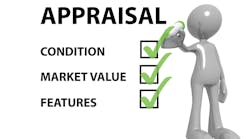Now is the time to find out what your dental practice is worth
By Kyle Francis
Whether they’re thinking of selling or not, homeowners usually have a ballpark idea of how much their home is worth in the current market. Most homeowners’ most valuable asset is their house, so it makes sense to know its value. But most dentists who own a practice don’t have a solid idea of how much their business is worth, even though it is usually by far their most valuable asset.
I’ve facilitated hundreds of practice transitions, and I’d estimate that 90% of the dentists I’ve worked with had no idea what the value of their practices were when they started the process. Not knowing the value of their practices can put dentists at a disadvantage. Understanding how much your practice is worth gives you more options as you plan your next career move or think about retirement.
Practice valuation keeps options on the table
Retirement and career planning are the two main reasons dentists need to know the value of their practices. That’s because a longer time horizon keeps more options on the table and gives practice owners the opportunity to leverage the values they’ve created to get a bigger payday. In either case—selling a practice to retire or transitioning a practice to make a career move—knowing the value is key.
Consider the example of a midcareer dentist with two partners who wants to cash out of a practice valued at $3 million. A short-term exit by selling to an individual could bring in around $1 million. But with careful planning, the dental partners could work together to increase the value of the practice and more than double or even triple their shares by exploring affiliation options.
The same is true for dentists who are thinking about retirement. Some dentists who want to retire in a few years bring in an associate to eventually purchase the practice. But if they think long term, they can build value in a number of other ways, including an equity relationship with a dental service organization. This can dramatically increase practice value, but it requires a longer time horizon, as much as five to seven years.
Factors that affect practice value
If you want to get an idea of what a home is worth, you can look at Zillow or Realtor.com and see what similar homes are selling for. That’s not an option with dental practices. Overall the industry remains strong, but you’ll have to get an end-to-end practice appraisal to know what your practice is worth so you can make informed decisions about your next move.
A professional appraiser will take multiple factors into consideration to determine practice value, including location, practice visibility within the community, regional growth, building type (e.g., standalone building, retail center) and even signage. The appraiser will also take into account the practice type, whether it is a general practice or a specialty practice that relies on referrals.
Other factors include the number of active patients (people seen within the last 12 to 18 months) and patient attraction and retention rates. The appraiser will typically look at the number of new patients who have come into the practice on an annual and monthly basis. They’ll also assess whether patients stay with the practice or move on, determining an attrition rate.
Among other factors appraisers consider is the value of the dental equipment, as determined through potential resale pricing, and the condition of the office. Practice revenue trends and profit margins are key factors, with a special emphasis on the past three years and the most recent year. For this reason, it’s important for dentists who intend to sell a practice not to reduce activities prior to the sale.
Getting a professional practice valuation
Obtaining a professional practice valuation will require extensive assessment and documentation. It typically includes the following items:
- Three years of profit and loss statements and tax returns
- Current balance sheet
- Production broken down by provider and procedure type
- Active patient roster and list of employees (with wage or salary information)
- New patients during the past 12 months
- Accounts receivable aging reportCopy of lease (if applicable)
- Dentist biography
- Photo documentation of office and equipment
- Office hours
- Insurance plans accepted
One thing to keep in mind is that it takes industry-specific expertise and skills to accurately determine a practice’s profit margin and potential value. For that reason, it’s important to find a professional who specializes in appraising dental practices. An appraiser with a track record of success in dental practice transitions is the safest bet.
The price of an appraisal may also be a consideration. Practice appraisals are an essential tool in career and retirement planning, but a thorough appraisal is a time-consuming process that requires special insight, so it’s not unusual for practice appraisers to change as much as $5,000 or more. But dentists should keep in mind that the appraiser receives value from the evaluation too, so it’s possible to find expert appraisers who don’t require a fee.
Whichever route you choose, obtaining an appraisal so that you have an accurate sense of the value of the practice is an essential component of successful career and retirement planning. The sooner you know how much your practice is worth, the earlier you can start enhancing its value. When it comes to practice appraisal, there’s no time like the present.
Kyle Francis is the founder and CEO of Professional Transition Strategies.






